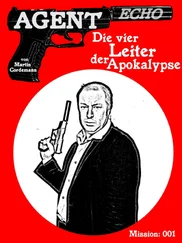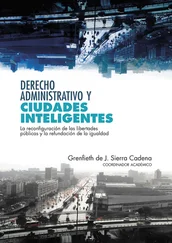She did not lure me to her. The contamination did not spread that far. Away from her, I felt no great yearning for her. But once I set foot on the Dark Echo , I seemed to fall under her strong and sensual spell.
I had Chesney, in his shiny, pantomime sentry outfit, to thank for this belated insight. As I pulled up outside Peitersen’s picturesque country hotel, it was not a comfortable thought.
Then I had another. What if I had looked in the sail store? I had a sudden and very confident intuition that I would have encountered not a rodent, but Spalding’s pet bull mastiff Toby, stinking and wormy and dead. And panting and eager in its grotesque parody of canine life for the return of his long-lost master. The dog had lurked in the sail store, had gnawed rope there in the cool and the quiet when the weather and swell had made the deck unsafe. I knew it now. I knew it suddenly and with the same absolute certainty insisting that night follows day.
I had no trouble at all in accessing Pietersen’s room. My driving licence established my surname. And there was no Chesneyesque confusion over it. The Stannard name had been the source of much guaranteed income for the duration of Peitersen’s stay in the hotel, because my father had put him up in the best-appointed room in the place. His meals and his room had been paid for in advance until the end of June, the Easter and early summer premiums effortlessly accommodated by my father’s happy largesse. So I was not surprised at the smiles and the opening doors and the all-round obsequiousness. In a microcosmic sort of way, they amounted to the story of my life.
The room, by contrast, offered me nothing. The windows were oppressively leaded and the walls punctuated by bucolic scenes of domestic country routine. The beamed ceiling was so low as to make the space seem cramped, despite its broad width and generous length. Logs sat in the grate of an authentic fire, but the bark was curling on them under a patina of dust. I patted the counterpane on the bed, sniffed at the plumped pillows. It was recently changed and made up, of course, but the bed had a cold, unslept-in look about it. Slowly, the details of the room revealed themselves. There was a TV and DVD combination, discreetly positioned and definitely not dating from the age of squires stretching before pewter jugs of porter after a hard day riding to hounds. There was a power shower in the adjoining bathroom. The bathroom was small. But its dove-white, downy towels were folded across heated rails. On a shelf under the mirror, there were little embossed bottles filled with creams and lotions, the sort hotel guests routinely steal to offset the pain of paying the bill.
Peitersen had paid no bill. And I was somehow sure he had stolen nothing either. I felt a strong certainty that he had never unscrewed the top from one of the pampering bottles on the bathroom shelf. Just as he had never taken a DVD to view from the small library of them under his television. Neither had he enjoyed a drink from the minibar tucked against the wall beside the television. His first-floor window looked out on to the budding leaves of a stately chestnut tree and, beyond it, a lush sweep of descending lawn. I doubted Peitersen had ever so much as noticed the view. I had a strengthening suspicion that he had never slept in the bed.
The fastidiousness of a monk.
Again I searched for a note, but found none.
I sat among the vases of wild flowers and the horse brasses and heavily framed pictures in a window seat in the hotel’s cluttered lobby to drink a cup of coffee. The sun warmed my back through the window. A Polish girl with pretty eyes fussed with her hair behind the reception desk. It was twelve o’clock. My mobile was still on the back seat of my car where I’d thrown it in exasperation earlier. I could hear the drone of a motor mower clipping the grass outside. Everything seemed perfectly normal but I knew that nothing was. I wondered if my father was still off-message in Chichester. I thought of the picture he had framed for me in my cabin aboard his blighted boat and felt like sinking to my knees and praying for his safety. Instead, I drained my cup and went over to where the Polish girl had been joined by a colleague similar enough to her for them to be sisters.
Yes, they had known the guest I described to them. The receptionist with the arresting eyes was called Magda. The other girl, her cousin Marjena, had given Mr Peitersen’s room its daily turn. Marjena’s English, while a hell of a lot better than my Polish, was nothing like as good as that spoken by Magda. I would ideally have liked to take Marjena for a walk in the hotel grounds for the sort of private chat that encourages people to recollect those careless details that can be significant. But Magda – who knew, of course, about the payment arrangements for Peitersen’s stay – did not seem to inhibit her cousin from speaking at all. And, of course, I needed help with translation.
It seemed Peitersen had certain idiosyncracies. Middle-aged and well heeled, most of the guests were yachties or golfers or couples enjoying a romantic break from their regular routine. The hotel was famous for its kitchen. There were two other restaurants, one Italian and one that sounded to me like the Kundan on the Hamble, that the hotel was happy to recommend. Peitersen never ate at any of them. Nor did he ever go to the gastropub a mile down the road.
‘And he did not eat in his room,’ Marjena said.
‘He must have eaten something.’
Marjena looked at the floor and said something incomprehensible.
I looked at Magda.
‘My cousin says Mr Peitersen was starving himself.’
‘Dieting?’
She shook her head. She narrowed her eyes, struggling for the English word. It came to her. ‘Fasting,’ she said.
When I got back to my car the message symbol was flashing on my phone.
‘Martin. You’ve been trying to reach me. Since it isn’t my birthday, and since I have not changed the terms of my will, I’m baffled by the attention. What can you possibly want?’
Under the humour, his voice was rich with contentment. Chichester agreed with him. Now I was going to deliver news that would ruin his day. I hesitated with my thumb over the redial button. How did I know that Peitersen had disappeared? I knew because Suzanne had told me the previous day. And how did I know that he wasn’t really Peitersen at all? I knew because Suzanne had done some digging, about which my father had never been consulted. What would I tell him? I would tell him the unvarnished truth. Killing the messenger was an injustice in which my father habitually indulged. And he might consider Suzanne’s digging a sort of betrayal. But there was no point in lying to him. She had acted out of concern for me. I was motivated only by concern for him. He could be bad-tempered, vindictive, capricious and cruel. He could out-sulk a spoiled four-year-old and he was breathtakingly vain. But he wasn’t stupid. I’d weather the verbal storm and wait for calm to return and, when it did, we would discuss the mysteries of the fraudulent boatbuilder and weigh their implications and try to solve them together.
Motive was the key to it, of course. I knew Suzanne’s and I knew mine right enough. But Peitersen’s motive was obscure and baffling. And my conversation with the Polish girls had thrown up as many questions about him as it had clues. I looked up through the Saab windscreen at the window of the room he had occupied. I could not see inside. Sunlight reflected back from the panes the dappled green of a chestnut tree against a pure blue sky. I took a deep breath and pushed the button on my phone.
He met me that evening in the West End of London at Sheekey’s restaurant after a performance at Covent Garden. His metaphor concerning Hadley’s yard and Wagner had been based on more than rhetoric. My father loved the opera and most particularly the leaden, myth-burdened Germanic stuff. He listened to it a lot at home on a hi-fi system that had cost roughly three times what I paid as the deposit on my Lambeth flat. But you couldn’t really begrudge him the luxuries he’d earned.
Читать дальше












